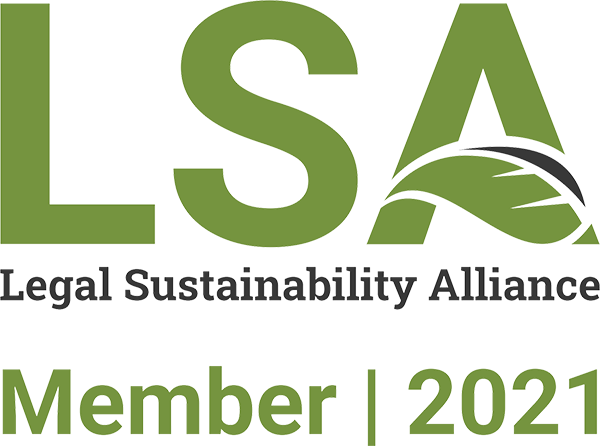On Saturday, 22 October 2022, Law 283/2022 came into force, making numerous amendments and additions to the Labour Code with a view to transposing two European directives: (i) Directive (EU) 2019/1158 on work-life balance for parents and carers and repealing Directive 2010/18/EU and (ii) Directive (EU) 2019/1152 on transparent and predictable working conditions in the European Union.
The new changes require employers to take several actions, summarised below:
- Updating the individual employment agreements and pre-employment information
The mandatory content of the employment agreement must include the following new elements:
- a)The workplace clause should stipulate, in the case of employees who have the possibility of working in different workplaces (i.e., mobile workers), whether the travel between such workplaces is provided or paid for by the employer;
- b)The salary clause will have to outline separately the constituent elements of the salary income (the template employment agreement approved by the Order no. 64/2003 of the Minister of Labour already contains headings for detailing the salary components) and also specify the payment method (i.e., in cash/by bank transfer);
- c)The clause on normal working hours will also have to include the conditions for working and compensating overtime and, where the case, the organisation of shiftwork (previously, Article 136 of the Labour Code already specified the obligation to stipulate in the employment agreement the daily/weekly period to which the different hourly intervals for shiftwork relate, and the template employment agreement approved by Order no. 64/2003 of the Minister of Labour already included provisions on overtime work and its compensation);
- d)The probationary period clause should specify not only the duration of such period but also its conditions;
- e)The agreement must stipulate that the employer bears the cost of the private medical insurance, of the additional contributions to the employee’s voluntary pension or occupational pension, in accordance with the law, and that the employer grants, on its own initiative, any other rights, where these constitute cash benefits granted or paid by the employer to the employee as a result of the employee’s professional activity, as the case may be.
These new elements should also be included in the pre-employment information provided to candidates.
Are addenda to the employment agreements necessary? Given that the law does not distinguish as to when the employment agreements are concluded, we are of the opinion that even existing agreements must be updated to align them with the new changes (via addenda), otherwise the labour inspectors may order the updating as a measure designed to ensure compliance.
Certain elements do no longer have to be included in the employment agreement but must be specified in the information provided prior to the conclusion or amendment of the employment agreement, namely: (i) the collective labour agreement governing the employee’s working conditions; (ii) the procedures for using electronic signatures, advanced electronic signatures and qualified electronic signatures. The information must also include the employee’s right to, and conditions of training offered by the employer.
NB: in a discrepant way, the law stipulates that all the elements of the prior information must be included in the framework template of the employment agreement established by order of the Minister of Labour, so it is unclear whether the elements specified in the previous paragraph will be included in the framework template of the agreement. The situation should be clarified with the publication of the new framework template of the individual employment agreement, which the Ministry of Labour is required to approve within 30 days of the publication of Law 283/2022 in the Official Gazette.
Should current employees be informed? Employers will only have to provide current employees with additional information on the conditions applicable to the employment relationship if they request it. The information must be provided within 30 working days of receiving the request.
- Internal regulations need to be updated. The communication procedure is also changed
The mandatory minimum content of the internal rules will need to be supplemented with rules on the prior notice and also with information on the general employee training policy (if any).
Employers will have to communicate the provisions of the internal rules on the first day of work and provide proof that this obligation has been fulfilled (previously, there was no specified time for fulfilling this obligation, but the enforceability against employees depended on the internal regulations being made known to them).
The law also eliminates the possibility to establish under the internal regulations or by the applicable collective labour agreement the specific way in which each employee is informed of the internal regulations and replaces it with an express reference to the possibility of informing employees of the internal rules either on paper or electronically, in the latter case on condition that the document is accessible to the employee and can be stored and printed by the employee.
The obligation to display the internal regulations at the employer’s office remains in force.
- Additional rights for employees are included:
- The employees’ right to apply for a transfer to a vacant position offering more favourable working conditions, if they have completed their probationary period and have been with the same employer for at least 6 months. Employers will be obliged to reply in writing, providing supporting reasons, within 30 days as of receiving the employee’s request, as to how the request will be dealt with. Derogations will only be possible by special laws and only in certain professional areas (e.g., defence, public order and national security personnel, magistrates, civil servants).
- The right to carer’s leave, which is granted on request, for a maximum of 5 working days in a calendar year (which may be extended by special laws or under the collective agreement), in order to provide personal care or support to a relative (defined as a mother, father, son, daughter, husband or wife of an employee) or to a person living in the same household as the employee, who needs care or support due to a serious medical condition. The serious medical conditions and the conditions for granting carer’s leave are to be laid down by ministerial order.
- The right of employees to be absent from work for a maximum of 10 working days per year in unforeseen circumstances caused by a family emergency due to illness or accident, which make the immediate presence of the employee indispensable, provided that the employer is informed in advance and the period of absence is recovered until the employee’s normal working hours are fully covered. The arrangements for recovering the period of absence will be agreed between the employer and the employee.
- The duration of paternity leave, carer’s leave and the duration of the absences from work specified above will be considered as periods of performed work for the purpose of determining the annual leave’s duration. The employer will also be prohibited from dismissing employees during these periods of absence.
- The employees’ right to work for different employers or for the same employer under individual employment agreements will only be exercisable if there is no overlapping of the working hours. It is clarified that no employer may treat disadvantageously an employee exercising this right.
- Any employee will be able to request a personalised work schedule, including for a limited period of time. Any refusal of such a request must be justified in writing by the employer within 5 working days of receiving the request. If the personalised work schedule is agreed for a limited duration, the employee has the right to return to the original schedule before the end of the agreed period if the circumstances which led to the establishment of the personalised work schedule change. Additionally, the law regulates that the term “flexible working time arrangements” means the possibility for employees to adapt their working hours, including through the use of remote working arrangements, of flexible work schedules, of personalised or of part-time work
- The right of employees, of their representatives or trade union members to protection against any adverse treatment by the employer for lodging a complaint or initiating a procedure for the enforcement of rights under the Labour Code. If they consider themselves to be victims of such adverse treatment, employees will have the burden of proving in court the facts on the basis of which such treatment may be presumed to exist and will be able to claim compensation, the restoration of the previous situation or the annulment of the situation created.
- The right of employees to refer matters to the Labour Inspectorate if the employer does not inform them of all the elements laid down in the Labour Code (see point 1 above).
- The establishment of a new probationary period is prohibited if, within 12 months, a new individual employment agreement is concluded between the same parties for the same position and with the same duties.
- The law clarifies that, if the employee is to work abroad, the employment agreement must also specify the country/countries which he/she is to work from.
- The amount of the fine that can be imposed by labour inspectors for discrimination, harassment, victimisation or dismissal of employees on the basis of protected criteria changes and will be from RON 4,000 to RON 8,000 (compared to the current RON 1,000 to RON 20,000). The same level of fine may also be imposed for failure to grant carer’s leave or paternity leave.





